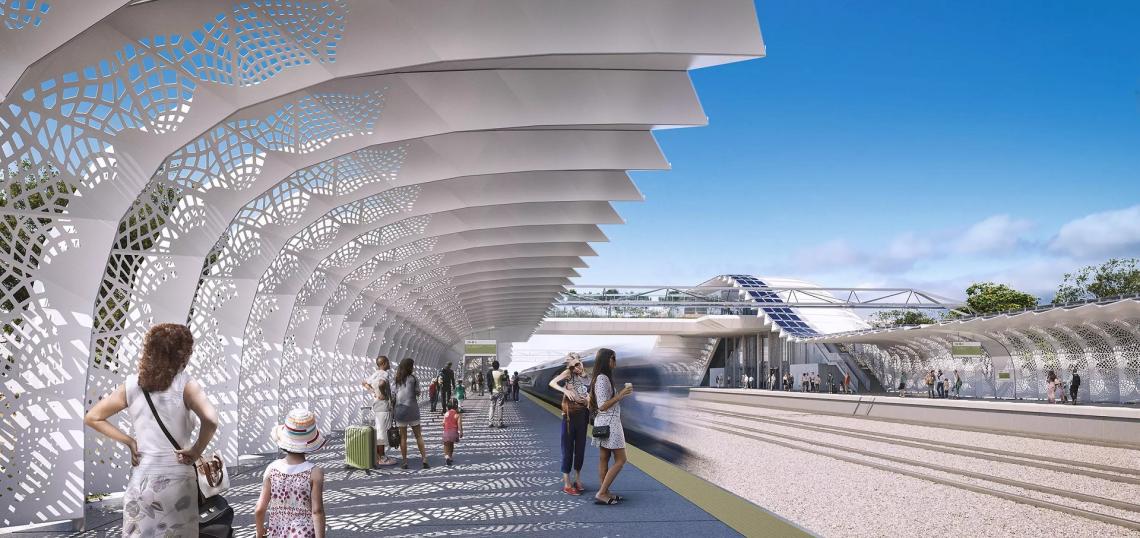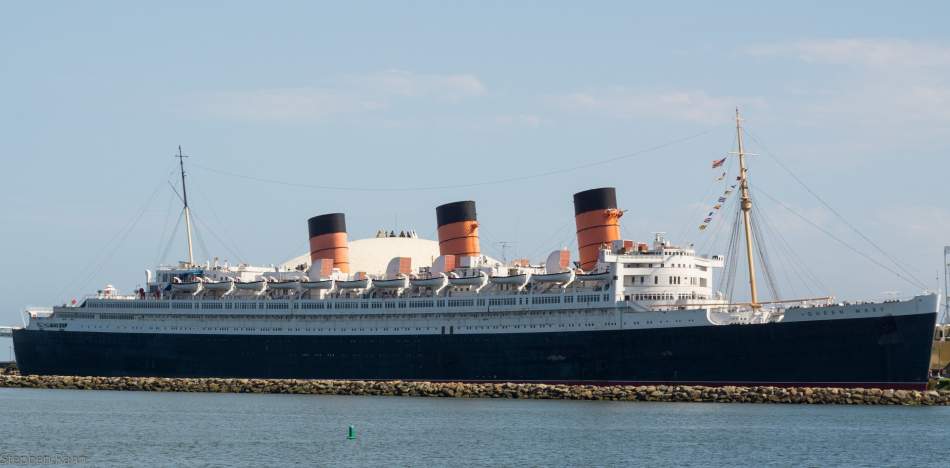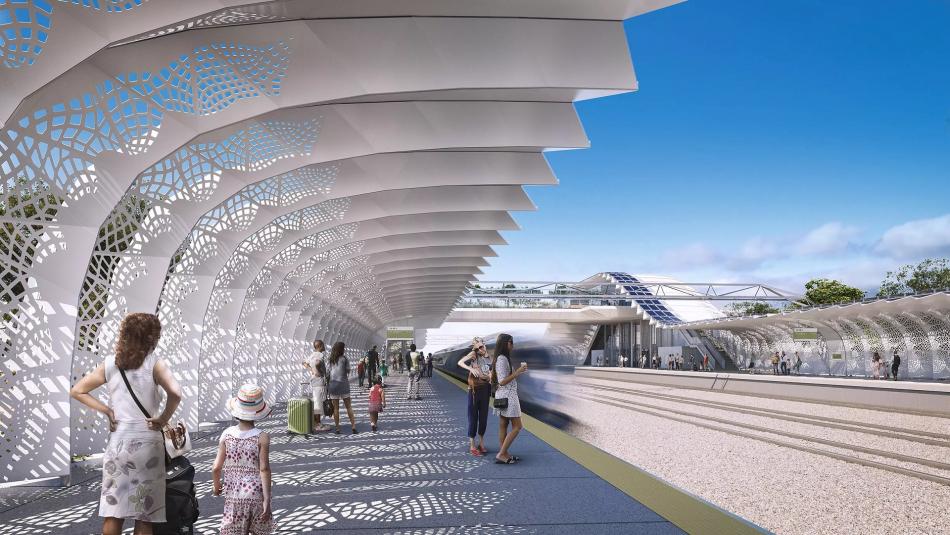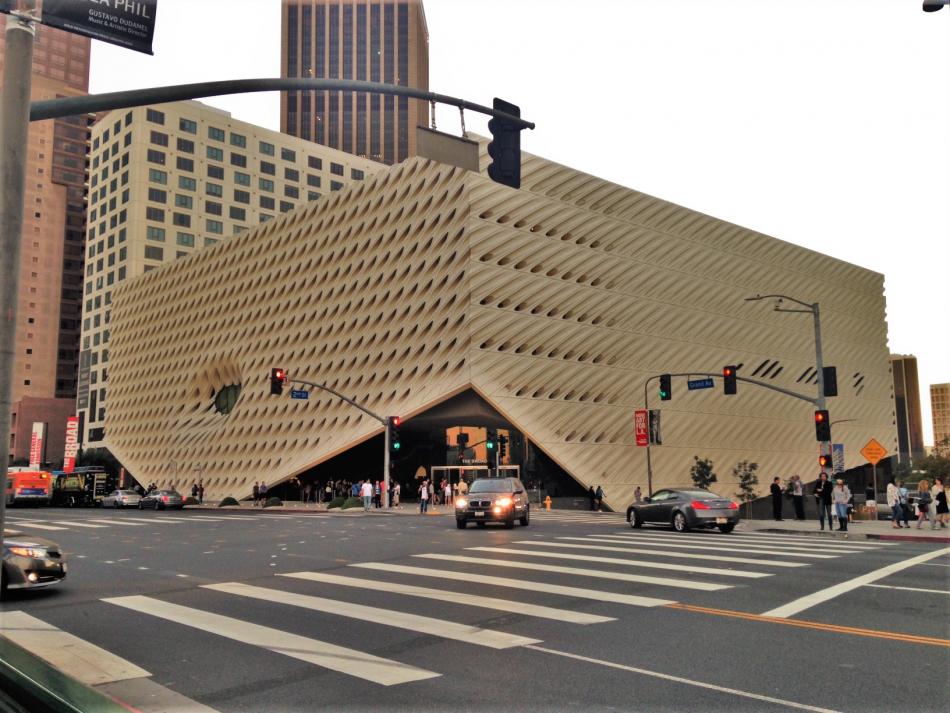Chinese conglomerate Tencent, maker of WeChat and majority owner of Riot Games, is setting up shop in Playa Vista.
The Los Angeles Times reports that the Shenzhen-based firm will consolidate existing Santa Monica, Claremont, and Century City offices under a single roof. The 53,000-square-foot space, located on Jefferson Boulevard, will provide capacity for up to 300 employees - double the size of Tencent's existing Los Angeles workforce.
In addition to joining a number of large tech companies to the Westside, Tencent also follows fellow Chinese conglomerate ByteDance, which runs the popular TikTok app out of a 120,000-square-foot office in nearby Culver City.
Things to read from the past week:
After decades of rocky seas in Long Beach, Queen Mary in danger of sinking. Can it be saved? "After years of neglect by a string of operators, the Queen Mary is so creaky and leaky that it needs $23 million in immediate repairs, according to a trove of court documents and inspection reports released last month. There is growing concern that if something is not done soon, the ship could fall into critical disrepair and be in danger of sinking." (LA Times)
Tech Employees Return to the Office? As the Pandemic Recedes, Get Ready for Confusion and Awkwardness "Even though traffic is back, L.A. offices are only about 25% full, according to weekly data collected by Kastle Systems, an access control provider used in more than 2,600 buildings nationwide. That is higher than the 17% occupancy in New York City but considerably lower than the 42% in fully reopened Houston." (dot LA)
As His Homeless Housing Order Faces Appeals, a Judge Says He Won’t Let Up "Last Wednesday, Carter held another hearing in which he threatened to reinstate an order directing the city and county to house people living on freeway underpasses and overpasses. The city and county struck their own agreement last April that thwarted the order, but Carter said he may reissue it if he doesn’t see more progress. He said last week he wasn’t ready to just yet, but the hearing served as a loud reminder of the power he still holds even as the Ninth reviews the injunction regarding audits and Skid Row housing offers. He spent a portion of it displaying photos of freeway overpasses that had been cleared for the Academy Awards while questioning Los Angeles Homeless Services Authority Executive Director Heidi Marston about the city’s priorities." (Los Angeles Magazine)
The pandemic sparked a new business, and a Black cycling movement in South L.A. "Members of the RideWitUs bike club are mostly in their 30s and 40s. Most are Black or Latino and hail from South L.A. neighborhoods. They number about 150 strong and ride between 12 and 25 miles three times a week including to Santa Monica, Redondo Beach and downtown L.A. Most did not see themselves becoming cyclists when they took their first rides, but they came back for the sense of community." (LA Times)
What Went Wrong With California's High-Speed Railway The B1M takes a look at the California High-Speed Rail project (B1M - YouTube)
California’s Active Transportation Program Can’t Meet Statewide Needs on a Shoestring Budget "In 2014, cities and counties across the state requested about $1 billion in funding for pedestrian and bicycle safety projects, but there was only $368 million available, meaning about 37 percent of applicants were funded that cycle. Fast forward to Cycle 5 in 2020 when over $2.5 billion in funding requests were submitted for $554 million in available funding, a success rate of about 22 percent. In Los Angeles County, only 14 of 64 applications were awarded even partial funding, or 22 percent total – demoralizing, yet consistent with the statewide average." (Streetsblog LA)
Building a Home in the U.S. Has Never Been More Expensive Click through for a handy diagram breaking down how the price of raw materials (lumber and concrete) plus other components have contributed to rising construction costs for new housing (Bloomberg)
Urban oil wells linked to asthma and other health problems in Los Angeles "Oil rigs were so pervasive across the region that the Los Angeles Times described them in 1930 as “trees in a forest.” Working-class communities were initially supportive of the industry because it promised jobs but later pushed back as their neighborhoods witnessed explosions and oil spills, along with longer-term damage to land, water and human health." (The Conversation)
Who will fill Eli Broad’s philanthropic shoes? How about nobody? "And while we’re at it, let’s retire the outmoded idea that the most important factor in a city’s cultural landscape is the presence of some white knight bearing a checkbook and grandiose ideas about turning bulldozed Los Angeles neighborhoods into the Champs-Élysées (as Broad once described his vision for Bunker Hill)." (LA Times)
Metro Spokespersons Criticize Caltrans, EPA, and Public Input for Pausing 710 Freeway Widening "Is it time for Metro to accept what the EPA, Caltrans, corridor communities, and the L.A. Times, are already pretty clear about? As currently formulated by the Metro Highway Program, the 710 Freeway widening project is not viable. Isn’t it past time for Metro to stop blaming others for Metro’s own failures – and to truly, in the words of Phil Washington, 'reimagine' the future of the 710 corridor?" (Streetsblog LA)
Need help ditching your car for a train or bus? "Meet an L.A. public transit superfan "Kenny Uong doesn’t work for Metro, but he’s one of its greatest ambassadors....At the ripe old age of 21, Uong is an authority on public transit in Los Angeles. Since his protective parents first allowed him to take trips on his own at 16, he has spent all his free time on buses and trains — often in the company of other transit enthusiasts he first became friends with online. He takes public transit to the beach to breathe in the ocean air, to Chinatown in search of the delicious. He once took it to Bakersfield and back in a day. He had to set out at 5 in the morning, but he was home by 8 p.m." (LA Times)









